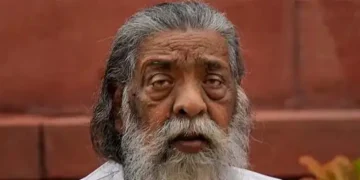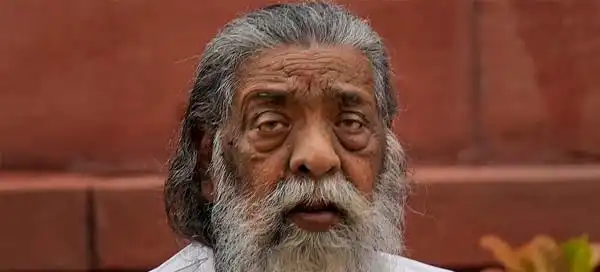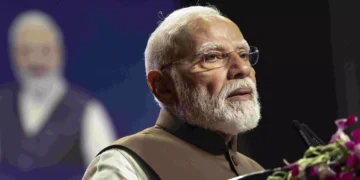Blitz Bureau
NEW DELHI: Born in the quiet village of Nemra in Ramgarh district Shibu Soren emerged from the soil of struggle. A member of the Santhal tribe, his early life was marked by tragedy: his father was murdered by thugs allegedly hired by moneylenders, a formative event that would shape his lifelong crusade against exploitation. The JMM leader, aged 81, passed away in a Delhi hospital on August 4.
The JMM general secretary, led agitations to reclaim alienated tribal lands, often dispensing what he called “people’s justice” through informal courts. By the age of 18, Soren had already begun organising resistance, founding the Santhal Navyuvak Sangh. In 1972, alongside A.K. Roy and Binod Bihari Mahato, he co-founded the Jharkhand Mukti Morcha (JMM), a political movement that would become synonymous with tribal assertion and land rights.
His activism, however, was not without controversy. In 1975, he was implicated in a violent campaign against non-tribals in Chirudih, resulting in multiple deaths. Though acquitted in 2008, related charges from earlier incidents remain unresolved.
Soren’s political journey began with a defeat in the 1977 Lok Sabha elections, but he rebounded in 1980, winning from Dumka. Over the next four decades, he would serve multiple terms in the Lok Sabha (1980-1984, 1989-1998, 2002-2019) and stints in the Rajya Sabha, including the current one. His tenure was punctuated by both influence and infamy.
As Union Coal Minister under Prime Minister Manmohan Singh during the UPA regime, he was forced to resign in 2004 due to the revival of the Chirudih case. After a brief period underground and a month in judicial custody, he returned to the Cabinet later that year, a move seen as part of a strategic Congress-JMM alliance ahead of Jharkhand’s Assembly elections. In 2006, Soren’s political career suffered a severe blow when he was convicted in the 1994 abduction and murder of his personal secretary, Shashi Nath Jha.


























